speakers
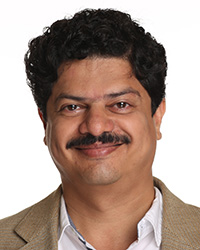
Abhijit R. Abhyankar
Indian Institute of Technology Delhi
Abhijit R. Abhyankar (Ph.D.) is a professor of electrical engineering at the Indian Institute of Technology Delhi (IIT Delhi) in New Delhi, India. He has acted as an expert member of various committees established by the Central Electricity Regulatory Commission (CERC) to provide technical support to resolve regulatory issues. He is a member of the National Reliability Council for Electricity (NRCE), set-up by the Ministry of Power, Government of India, through the Central Electricity Authority (CEA). He is also a member of the Taskforce on PoC Transmission Pricing Review, constituted by CERC, New Delhi.
Abhyankar is a lead investigator in international collaborative research projects that involve academia and industry from the UK, U.S., and The Netherlands. He has consulted various government and private agencies like POWERGRID, Maharashtra Electricity Regulatory Commission, Department of Science and Technology, Indian Energy exchange, Mercaods EMI Pvt. Ltd., ReNew Power, and State Electricity Utilities. He has more than a hundred papers published in various international journals, international conferences and national conferences to his credit. He was awarded a teaching excellence award at IIT Delhi. His current research interests include smart grids, electricity policy and regulatory matters, power system flexibility, power system optimization, power markets, and distribution systems.
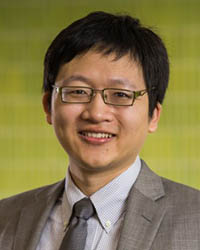
Minjie Chen
Assistant Professor, Department of Electrical Engineering and the Andlinger Center for Energy and the Environment
Minjie Chen is an assistant professor of electrical engineering and the Andlinger Center for Energy and the Environment at Princeton University. His primary research interests are in the design of high-performance power electronics for emerging and high-impact applications, including renewable energy, LED lighting, grid-interface power supplies, and miniaturized power management systems. He received his B.S. from Tsinghua University in 2009, and his S.M., E.E., and Ph.D. degrees from MIT in 2012, 2014 and 2015 respectively, all in electrical engineering. Chen is the recipient of the NSF CAREER Award, the Chorafas Award for outstanding thesis at MIT, the First Place Award from Princeton Innovation Forum, and two Annual Prize Paper Awards from the IEEE Power Electronic Society. He is an associate editor of the IEEE journal, Transactions on Power Electronics, and a guest associate editor of the Journal of Emerging and Selected Topics in Power Electronics.
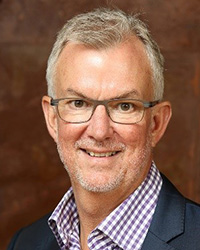
Chris Greig
Dow Chair in Sustainable Engineering Innovation
The University of Queensland, St Lucia, Queensland, Australia;
Andlinger Visiting Fellow in Energy and Environment, Princeton University (2018-2020)
Chris Greig is a professor of chemical engineering and director of the Dow Centre for Sustainable Engineering Innovation at The University of Queensland (UQ) in Australia. He joined UQ in 2011 following an executive career in industry, and is a fellow of the Australian Academy of Technological Sciences and Engineering. His 25-year industry career commenced in 1986 as the co-founder of a successful process technology and contracting company, which he sold in 1999 to a major European engineering company. Since then and prior to joining UQ, he held senior project and executive roles in the construction and energy resources sectors, including as CEO of ZeroGen, a large-scale carbon capture and storage (CCS) project.
During his time at UQ, Greig also served as chairman of the Energy Policy Institute of Australia, deputy chairman of Gladstone Ports Corporation (one of Australia’s largest energy export hubs) and non-executive director of two ASX listed engineering companies. His main interests at UQ lie in energy transitions, economics and policy, energy for development, mega-project implementation and CCS.
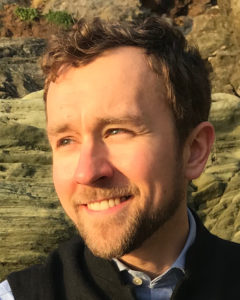
Phillip Hannam
Energy Economist
South Asia, Energy & Extractives Global Practice
The World Bank
Phillip Hannam is an energy economist with the World Bank’s energy practice in South Asia, working mostly with India and Bangladesh. He supports the transition to renewable energy through investments in innovative technologies and analytics on energy storage. He was part of the team that negotiated a historic $75 billion replenishment for the World Bank’s low-income countries fund (IDA), focusing on climate and energy commitments. He has supported the World Bank’s strategic use of climate finance to maximize global climate action.
Hannam has a Ph.D. from the program in Science, Technology and Environmental Policy at Princeton University. His research examined the politics of China’s international support for coal power, particularly strategic responses of other donors and implications for climate change governance. Hannam was a visiting researcher at the University of Leeds in 2016, and a research scholar at the Centre for Policy Research in New Delhi, India in 2015. From 2009-2011, Phil studied south-south cooperation as a Chinese Government Scholar at the U.N. Environment Program-Tongji Institute of Environment for Sustainable Development in Shanghai. His research or commentary have been published in Science, Nature Climate Change, Climatic Change, and India in Transition.
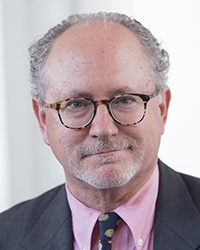
Mark Alan Hughes
Professor of Practice
School of Design, University of Pennsylvania
Founding Faculty Director, Kleinman Center for Energy Policy
Mark Alan Hughes is a professor of practice at the University of Pennsylvania’s School of Design and founding faculty director of the Kleinman Center for Energy Policy. He is also a faculty fellow of the Penn Institute for Urban Research, a senior fellow of the Wharton School’s Initiative for Global Environmental Leadership, and a distinguished scholar in residence at Penn’s Fox Leadership Program. Hughes joined the standing faculty of Princeton University’s Woodrow Wilson School in 1986 at the age of 25 and joined the Penn faculty in 1999. He has published in the leading journals of economic geography, urban economics, political science, policy analysis, and won the National Planning Award for his research in city and regional planning.
He was chief policy adviser to Mayor Michael A. Nutter and the founding director of sustainability for the City of Philadelphia, where he led the creation of the Greenworks Plan. He has designed and fielded national policy research projects in a variety of areas including the Bridges to Work program in transportation, the Transitional Work Corporation in job training and placement, the Campaign for Working Families in EITC participation, and the Energy Efficient Buildings Hub in regional economic development. This work has been funded by H.U.D., H.H.S., D.O.E., Ford, Rockefeller, Pew, Casey, WmPenn, and others. Hughes earned a Ph.D. in regional science from the University of Pennsylvania, and a B.A. from Swarthmore College.
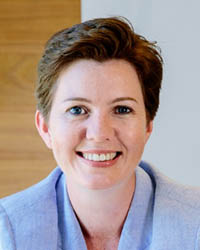
Karen Hussey
Director, Centre for Policy Futures
The University of Queensland
Karen Hussey is director of the Centre for Policy Futures located in the Faculty of Humanities and Social Sciences at The University of Queensland (UQ), a position she began in July 2017. Trained as a political scientist and economist, Hussey undertakes research in the field of public policy and governance, with a particular interest in public policy relating to sustainable development.
Prior to beginning her position at UQ, Hussey was deputy director of the Global Change Institute at UQ, and prior to that she was associate professor in the Fenner School of Environment and Society at the Australian National University (ANU), where she now holds an adjunct professorship. From 2007-2010, she was based in Brussels as the ANU vice chancellor’s representative in Europe, where she was responsible for developing the ANU’s research relationships and profile with European research teams and institutions.
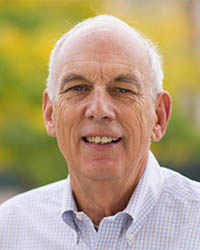
Robert O. Keohane
Professor of International Affairs, Emeritus
Woodrow Wilson School of Public and International Affairs
Robert O. Keohane is a professor of international affairs, emeritus, at Princeton University. He is the author of “After Hegemony: Cooperation and Discord in the World Political Economy “(1984/2005) and “Power and Governance in a Partially Globalized World” (2002). He is co-author with Joseph S. Nye, Jr. of “Power and Interdependence” (1977/2012), and with Gary King and Sidney Verba of “Designing Social Inquiry” (1994). He has served as the editor of International Organization and as president of the International Studies Association and the American Political Science Association. He won the Grawemeyer Award for Ideas Improving World Order, 1989, the Johan Skytte Prize in Political Science, 2005, and the Balzan Prize in International Relations: History and Theory, 2017. He is a member of the American Academy of Arts and Sciences, the American Philosophical Society, and the National Academy of Sciences. He is also a corresponding member of the British Academy. His current work focuses on the comparative and international politics of climate change.
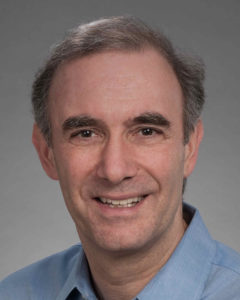
Daniel Kirschen
Donald W. and Ruth Mary Close Professor of Electrical Engineering
University of Washington
Daniel Kirschen is the Donald W. and Ruth Mary Close Professor of Electrical Engineering at the University of Washington. His research focuses on the integration of renewable energy sources in the grid, power system economics and power system resilience. Prior to joining the University of Washington, he taught for 16 years at The University of Manchester in the United Kingdom. Before becoming an academic, he worked for Control Data and Siemens on the development of application software for utility control centers. He holds a Ph.D. from the University of Wisconsin-Madison and an electro-mechanical engineering degree from the Free University of Brussels in Belgium. He is the author of two books and over 200 journal papers. He is a fellow of the IEEE.
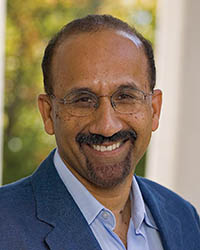
Atul Kohli
David K.E. Bruce Professor of International Affairs
Woodrow Wilson School of Public and International Affairs
Princeton University
Atul Kohli is the David K.E. Bruce Professor of International Affairs at Princeton University. His principal research interests are in the area of political economy of developing countries. He is the author of “Imperialism and the Developing World: How Britain and the U.S. Shaped the Global Periphery” (forthcoming, Oxford University Press, 2019); “Poverty amid Plenty in the New India” (2012), a Foreign Affairs Best Book of 2012 on Asia and the Pacific; “State-Directed Development: Political Power and Industrialization in the Global Periphery” (2004), winner of the Charles Levine Award of the International Political Science Association (2005); “Democracy and Discontent: India’s Growing Crisis of Governability” (1991); and “The State and Poverty in India” (1987). He has also edited or co-edited ten volumes, most recently, “States in the Developing World” (2017); and “Business and Politics in India” (2019) and published some 60 articles.
Through much of his scholarship he has emphasized the role of sovereign and effective states in the promotion of inclusive development. He is editor of the journal World Politics. During 2009-10 he served as the vice president of the American Political Science Association. He has received grants and fellowships from the Social Science Research Council, Ford Foundation, and Russell Sage Foundation. He received his Ph.D. from the University of California, Berkeley.
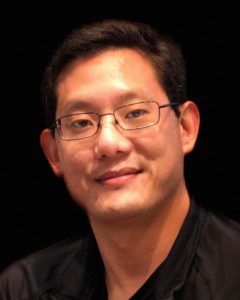
Anthony Ku
Director of Advanced Technologies
National Institute of Clean and Low-carbon Energy (NICE)
Anthony Ku is the director of Advanced Technologies at the National Institute of Clean and Low-carbon Energy (NICE), the research division of China Energy. In 2018, China Energy produced 15 percent of China’s electricity and had the world’s largest capacity in coal (180GW) and wind (37GW) generation. Ku is responsible for research and development addressing China Energy’s strategic challenges related to carbon management and air pollution, operational efficiency, and long-term sustainability. He is also the chief technology officer for NICE America Research, the U.S. office for NICE, with responsibilities for strategy and technical execution in areas related to hydrogen infrastructure development, shale gas technology, and energy management.
Prior to joining NICE, Ku was a senior engineer at GE Global Research where he led advanced materials development projects in support of GE’s water, energy, aviation, and healthcare businesses, and coordinated GE’s corporate-level assessments to identify and address supply chain exposure to critical materials. He was also a founding editor of Sustainable Materials and Technologies, a technical journal focused on reducing the knowledge gap between materials development and system-level engineering design. Ku holds a Ph.D. in chemical engineering from Princeton University and master’s and bachelor’s degrees in chemical engineering practice from MIT.

Eric Larson
Senior Research Engineer
Energy Systems Analysis Group
Eric Larson is a senior research engineer and head of the Andlinger Center’s Energy Systems Analysis Group. He is also affiliated with the Woodrow Wilson School’s Center for Policy Research on Energy and the Environment and with the Princeton Environmental Institute, and he has an appointment as a senior scientist with Climate Central.
Larson’s research interests intersect engineering, environmental science, economics, and public policy. His work is aimed at identifying sustainable, engineering-based solutions to major energy-related environmental problems, especially global climate change, and at informing relevant public policy debates. He is widely recognized for his work on the design and techno-economic assessment of advanced processes for production of clean transportation fuels and electricity from carbonaceous sources with CO2 capture and storage. He has recently collaborated with ecologists at the University of Minnesota and Colorado State University to better understand the potential of biomass-based energy options to deliver negative carbon emission transportation fuels in the United States. He is currently co-leading a global collaborative research effort with colleagues in China, India, and Australia called Rapid Switch, which aims to identify sector-by-sector and region-by-region key likely bottlenecks to rapid energy-system decarbonization, and associated strategies for resolving bottlenecks. Larson has 87 peer-reviewed papers and more than 250 publications in total. He holds a B.S.E. from Washington University in St. Louis (1979) and a Ph.D. in mechanical engineering from the University of Minnesota (1983).

Yueh-Lin (Lynn) Loo
Director
Theodora D. ’78 and William H. Walton III ’74 Professor in Engineering
Professor of Chemical and Biological Engineering
Yueh-Lin (Lynn) Loo is director of the Andlinger Center for Energy and the Environment and the Theodora D. ’78 and William H. Walton III ’74 Professor in Engineering, and a professor of chemical and biological engineering. Loo’s research interest is in the processing and development of materials for lightweight and flexible solar cells and circuits, the combination of which is being explored for self-powered “smart” windows to decrease energy consumption and increase occupant comfort in buildings. Her research expanded into economic modeling of liquid fuels production from non-food biomass after her stint at NewWorld Capital Group, a private equity firm that invests in environmental opportunities.
Having received her Ph.D. in 2001 from Princeton University, Loo returned in 2007 after starting her academic career at the University of Texas at Austin. As the associate director of external partnerships at the Andlinger Center from 2011 to 2015, she launched and led Princeton E-ffiliates Partnership. Loo served as acting vice-dean of the School of Engineering and Applied Science in the spring of 2016.
The author of over 170 publications, Loo has delivered more than 200 invited and plenary lectures globally and she serves on numerous international advisory boards of peer academic institutions, non-governmental organizations, journal publishers, and private companies. She is a fellow of the American Physical Society, a Young Global Leader of the World Economic Forum, and a Strategic Adviser for NewWorld Capital Group. Her scholarly work has been recognized by numerous other accolades, including Sloan and Beckman Fellowships, the John H. Dillon Medal from the American Physical Society, and the Alan P. Colburn Award from the American Institute of Chemical Engineers.
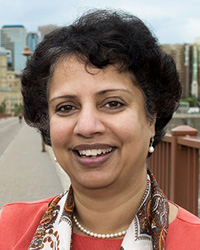
Anu Ramaswami
Chair Professor of Science, Technology & Environmental Policy
University of Minnesota
Anu Ramaswami is the Chair Professor of Science, Technology and Environmental Policy at the University of Minnesota. She is the lead principal investigator and director of the National Science Foundation’s Sustainable Healthy Cities Network, which spans eight universities and engages with several cities across the United States and internationally on topics related to urban infrastructure.
Ramaswami is an interdisciplinary environmental engineer who is recognized as a pioneer and leader on the topic of sustainable urban infrastructure systems. Over the past 12 years, she has advanced an interdisciplinary science of sustainable urban infrastructure and food systems that informs strategies, designs, and policies for developing environmentally sustainable, healthy, livable, and equitable cities worldwide. She studies urban areas in the United States, India, and China in a global systems context essential for achieving the world’s Sustainable Development Goals (SDGs).
Ramaswami received her B.S. in chemical engineering from the Indian Institute of Technology Madras, India, and her M.S. and Ph.D. in civil and environmental engineering from Carnegie Mellon University in Pittsburgh. Ramaswami serves on the United Nation’s International Resource Panel and co-chaired its inaugural report on natural resources and the Sustainable Development Goals (SDGs), presented at the United Nation’s Environmental Assembly in 2017.
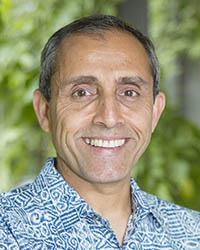
Ambuj Sagar
Vipula and Mahesh Chaturvedi Professor of Policy Studies;
Founding Head of the School of Public Policy
Indian Institute of Technology Delhi
Ambuj Sagar is the Vipula and Mahesh Chaturvedi Professor of Policy Studies and the founding head of the School of Public Policy at the Indian Institute of Technology Delhi (IIT Delhi). Sagar’s interests broadly lie at the intersection of science, technology and development. His recent work has focused on innovation policy for meeting sustainability and inclusivity challenges, energy innovation policy and strategies (in areas such as biofuels, clean cookstoves, coal power, automobiles, and institutional mechanisms such as climate innovation centers), climate change policy and politics, capacity development, and higher education policy. He has worked extensively with various Indian government ministries as well as many multilateral and bilateral entities.
Sagar completed his undergraduate studies in mechanical engineering at IIT Delhi. He subsequently received an M.S. in aerospace engineering from the University of Michigan and then an M.S. in materials science, a Ph.D. in polymer science, and an M.S. in technology and policy from Massachusetts Institute of Technology.
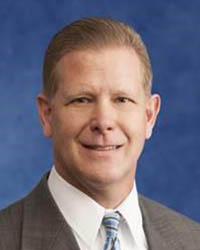
Peter Trelenberg
Manager, Environmental Policy and Planning
ExxonMobil Corporation
Peter Trelenberg is a manager of environmental policy and planning at ExxonMobil Corporation. He received his Bachelor of Science in civil and environmental engineering from the University of Wisconsin in 1980 and joined Exxon as a project engineer at the Bayway Chemical Plant in New Jersey. He has subsequently worked in a variety of project, planning, and business development roles of increasing responsibility for the corporation’s chemical businesses in the United States and Asia; was a senior adviser at the corporation’s headquarters in Dallas; refinery manager at Torrance in California; and head of planning and business development for ExxonMobil Chemical Company in Houston. He became a manager of environmental policy and planning for ExxonMobil Corporation in December, 2011. Trelenberg has been licensed as a professional engineer in both Wisconsin and New Jersey. He is married and has three children.
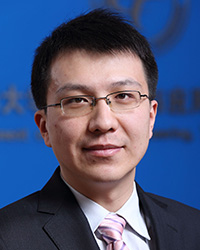
Ning Zhang
Associate Professor. Department of Electrical Engineering
Tsinghua University
Ning Zhang is an associate professor in the Department of Electrical Engineering at Tsinghua University. He earned his B.S. from Tsinghua University, Beijing, China in 2007. He received his Ph.D. in electrical engineering from Tsinghua University in 2012. After he completed two years of research as a postdoctoral fellow, he started working at Tsinghua University as a lecturer in 2014. He was a research associate in The University of Manchester from October 2010 to July 2011 and a research assistant at Harvard University from December 2013 to March 2014.
He is an IEEE senior member and cigre member. His research interests include multiple energy systems, power system planning and operation with renewable energy (wind power photovoltaic, concentrated solar power) and data-driven analytics of power systems. He has published more than 100 papers, including more than 40 papers in IEEE Transactions and Applied Energy. He has 13 invention patents and 8 computer software copyrights. His papers have over 2,000 citations with an H index of 24 on Google Scholar.
He was awarded The World Federation of Engineering Organizations’ (WFEO) Award for Young Engineers Advancing U.N. Sustainable Development Goals in 2018, and Young Elite Scientists Sponsorship Program by the Chinese Association of Science and Technology in 2016. He serves as the editor of several top-tier journals including IEEE Transactions on Power Systems (TPWRS). He serves as the secretary of C1.39 and member of C6/C1.33 and C6/C2.34.
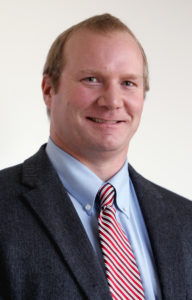
Mark Zondlo
Associate Director for External Partnerships
Associate Professor of Civil and Environmental Engineering
Mark A. Zondlo is an associate professor of civil and environmental engineering and the associate director of external partnerships at the Andlinger Center for Energy and the Environment at Princeton University. He leads the Atmospheric Chemistry and Composition Group where his research focuses on natural and anthropogenic trace gases in the atmosphere and their associated impacts on air quality, cloud formation, carbon and nitrogen cycles, and climate. He develops and deploys optical-based sensors for trace gas measurements on aircraft, drones, vehicles, balloons, and towers as part of interdisciplinary, large-scale field experiments.
Zondlo received a B.A. from Rice University in chemistry in 1994, a Ph.D. from the University of Colorado in physical chemistry in 1999, and was a National Center for Atmospheric Research (NCAR) Advanced Study Program Postdoctoral Fellow from 1999-2002. Before joining the Princeton faculty in 2008, he was a senior research scientist at Southwest Sciences, Inc., where he developed new laser-based technologies for atmospheric and industrial sensing. Zondlo is also an associated faculty with the Center for Mid-Infrared Technologies for Health and the Environment (MIRTHE), Department of Atmospheric and Oceanic Sciences, Princeton Environmental Institute, Princeton Institute for the Science and Technology of Materials (PRISM), and the Andlinger Center for Energy and the Environment.